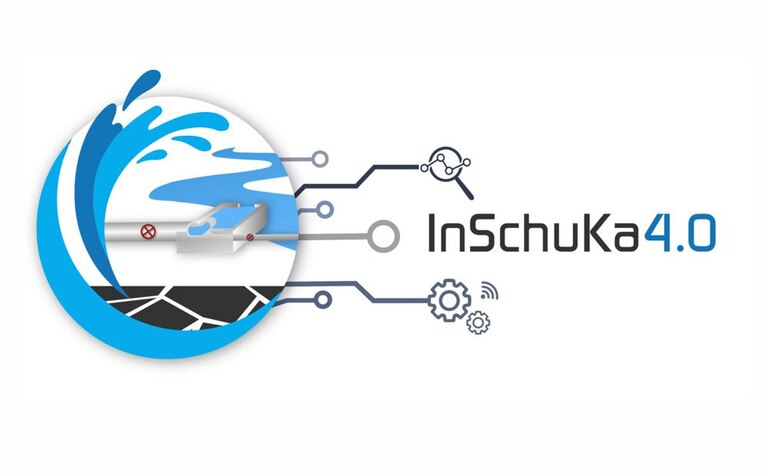07-11-2022
InSchuKa4.0": Preparing the wastewater network for the consequences of climate change

Climate change poses enormous challenges to society in general and water management in particular. Floods or inundations caused by heavy rainfall are occurring more and more frequently in Germany and often cause great damage to people and the environment, for example, due to the uncontrolled discharge of untreated wastewater into water bodies when the canal is full. On the other hand, more dry periods are also expected in the future. For combined sewer operators, prolonged droughts can have serious negative consequences on the operation of the network. One of the most important aspects is sediment removal, which is more difficult during prolonged drought and the associated lower flow due to less water than during regular rainfall, which provides some of the regular sediment removal in the sewer. Fluctuations in flow due to precipitation have a much greater impact on channel sedimentation than, for example, design constraints such as slope or pipe material. Despite high expenditures for manual flushing, undesirable deposits and the associated negative effects such as unpleasant odour development occur time and again. In addition, if a heavy rain event occurs immediately after a prolonged dry period, a sewer system fills up within a very short time and the existing deposits enter the water bodies unpurified with the excess water from the sewer system.
Adapting water management to these climate change impacts and a realistic path to climate neutrality are thus issues of critical importance.
The location and timing of extreme weather events have been difficult to predict. Wastewater network operators can only counter these with dynamic and flexible solutions. This is where “InSchuKa4.0” comes in. The aim is to develop an artificial intelligence-based sewer management solution that uses innovative sewer sensors and state-of-the-art sewer equipment and incorporates historical and prognostic weather data to ensure flexible, resilient and efficient operation of the sewer network.
For this purpose, the municipal partner "JenaWasser" is making a section of the channel network of the City of Jena available. Based on the previous sewer network calculations including historical rainfall data, the first step is to use the simulation of various weather extremes to analyse the storage capacities of the subsection, how the sewer behaves in the various situations and what additional volume can be made usable. The results provide the basis for the required development of a novel AI-based management solution. Next, advanced control elements (gate/weir systems and IT automation) and sensors to detect sediment will be installed and connected to the AI-based management solution. The ensuing trial operation will show the capabilities of the new system and how it can be transferred to other use cases.
NIVUS support the project with the innovative ultrasound-based particle concentration measurement NivuParQ 850. The measurement shows the particle load of TSS equivalent < 63 µm as well as higher size classes. The measurement system enables continuous monitoring of the water without the need to install complex sampling systems. More on Particle Concentration Measurement.
The project partners at a glance
- Institute for Water and Energy Management at Hof University of Applied Sciences (iwe)
- Magdeburg-Stendal University of Applied Sciences, Department of Water, Environment, Construction and Safety Chair of Urban Water Management – focus on wastewater
- HST Systemtechnik GmbH & Co KG (HST)
- Pegasys Company for Automation and Data Systems mbH (Pegasys)
- Nivus GmbH (Nivus)
- JenaWater (JeWa).